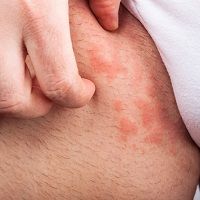People with Rosacea Have Higher Odds of Alzheimer's Disease
Rosacea patients are at a higher risk of developing Alzheimer’s disease and dementia, according to new research.

Rosacea patients are at a higher risk of developing Alzheimer’s disease and dementia, according to new research.
Lead by Alexander Egeberg, MD, Department of Dermato-allergology at Herlev and Gentofte Hospital, University of Copenhagen, the study published in Annals of Neurology showed the link between rosacea and dementia.
The research included data between 1997-2012 from nearly 6 million Danish citizens, of which 83,500 patients had rosacea. The patients were followed up to the end of 2012 or until they left Denmark and were diagnosed with dementia or died — whichever came first.
The team found that just over 99,000 patients developed dementia, including approximately 29,000 who were diagnosed with Alzheimer’s disease.
Results indicated that rosacea was associated with higher levels of certain proteins — matrix metalloproteinases and antimicrobial peptides – that have previously been implicated in several brain-wasting disorders like Alzheimer’s disease and other kinds of dementia.
Their analysis showed that compared with patients who did not have the skin condition, those with rosacea had a 7% increased risk of dementia and a 25% increased risk of Alzheimer’s disease.
Interestingly, female patients had a 28% risk of Alzheimer’s linked to rosacea, while for men; the risk was only 16%.
According to Egeberg, “A subtype of patients have prominent neurological symptoms such as burning and stinging pain in the skin, migraines, and neuropsychiatric symptoms, suggesting a link between rosacea and neurological diseases.”
However, Egeberg does urge his rosacea patients not to automatically assume having the skin condition would mean they would also develop dementia.
While rosacea and Alzheimer’s disease do appear to share certain underlying mechanisms, further research is still necessary to predict causal effects between the two conditions.